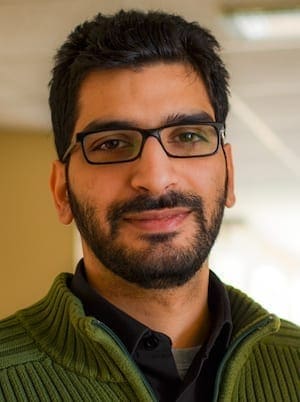As Egyptian developments unfold, Christians around the world are asking how best to preserve the Christian community from harm and maintain its voice and role in Egypt.
Media outlets have broadcast images of a brutal crackdown on the Muslim Brotherhood demonstrators while local and international human rights nongovernmental organizations (NGOs) have strongly criticized the army’s crackdown of demonstrators.
For example, on Aug. 14, 2013, Kenneth Roth, executive director of Human Rights Watch (HRW), tweeted after the declaration of emergency rule: “#Egypt’s last emergency rule went on for decades w/ mass injustice. It’s a huge mistake to go down this road again.”
Amid these developments, Christian voices from the region decried the portrayal of the Muslim Brotherhood as being the victims of injustice and criticized imbalanced coverage by the international media.
However, I would argue that the death of more than 500 persons in one day puts the onus on the government and military, no matter how the media portrays it.
The footage of the crackdown condemned the military’s actions and overshadowed Muslim Brotherhood attacks on churches, schools and Christians’ property.
How can Christians adopt a stance that promotes the protection of Egypt and its Christians from Muslim Brotherhood extremists without simultaneously condoning what has been described as “one of the deadliest single-day instances of police-on-protester violence since Tiananmen Square”?
Does Muslim Brotherhood violence, including sectarian violence, justify this series of events?
Under modern democratic standards, the answer is no. This is where the human rights framework becomes relevant.
Since the late ’70s, an international human rights framework for law enforcement officials has been developed.
In international human rights standards, a key document is the “Basic Principles on the Use of Force and Firearms by Law Enforcement Officials” adopted by a United Nations conference in 1990.
The main purpose of these principles is the protection of the right to life and physical integrity. These principles state that:
â— Law enforcement officials shall not use firearms against persons except in self-defense or defense of others against the imminent threat of death or serious injury.
â— Only when less extreme means are insufficient to achieve these objectives.
â— And such use of force should be proportionate to the threat and to the seriousness of the crime.
These principles favor the deployment of nonlethal incapacitating weapons and “the use of nonviolent means before resorting to the use of force and firearms.” According to reports, the Egyptian military failed to respect these principles.
For example, on Aug. 15, nine Egyptian human rights NGOs published a common statement pointing out that, in the eyes of international laws on the right to peaceful assembly, the fact that some sit-in participants and leaders committed crimes, possessed weapons and engaged in violence did not give security forces the right to exact collective punishment and use excessive force.
Neither the attacks on church or government property, nor the use of violence or threat to use violence by demonstrators – and ultimately acts of terrorism – can justify, under 21st-century legal standards, the killing by military or police of so many persons.
Relevant to this discussion is an article by Martin Accad posted on IMES blog on Aug. 16, 2012.
“The Church ought to adopt a moral stance that is driven by a concern for the protection and preservation of human life, whoever that life may belong to,” Accad wrote. “We condemn violence wherever it is found and whoever is its author, and we applaud those who seek peace wherever they are found and whoever they are.”
“Rather than being driven by fear,” Accad added, “the Church’s stance needs to be values-driven, affirming and seizing the opportunity and possibility of increased freedom and human dignity.”
Yes, Egypt’s Christians are facing an unprecedented attack, and I believe that what would protect Christians is the respect of human rights standards by government forces and the advancement of the rule of law.
Under these principles, Egyptian law enforcement officials can equally be held responsible both for failing to protect the lives and property, namely those of Christians in Egypt, and for failing to bring to justice those accountable for the crimes.
On Aug. 19, 2013, HRW issued a statement declaring, “Security forces did little or nothing to protect churches, despite the high likelihood of such attacks. Egyptian security officials bear responsibility not only for what they did in breaking up the protests but for their failure to protect churches and Christian communities against predictable reprisal attacks.”
Church buildings can be rebuilt. Burnt books can be reprinted. Businesses can be compensated for their loss. But the rule of law becomes entrenched through a lengthy and tedious practice.
What is happening now in Egypt is setting a precedent – counting from the fall of Mubarak – for an oppressive rule that disregards human rights under the banner of fighting terrorism.
Wissam al-Saliby is the development and partner relations manager at Arab Baptist Theological Seminary. He holds a master of arts in international law, has significant experience as a trainer and advocate for human rights and humanitarian law in Lebanon and the Middle East. A longer version of this column first appeared on the IMES blog and is used with permission.
You can visit ABTS on Facebook and follow IMES on Twitter @IMESLebanon.
Wissam al-Saliby is a UN Geneva Advocacy Officer with the World Evangelical Alliance.

